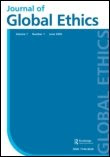A conference organized by the Midlands Regional IR Network
Hosted by the Department of Political Science and International Studies
University of Birmingham, Tuesday 15th September 2009.
Call for papers:
The study of International Relations (IR) has often borrowed from, and built upon, the work produced in diverse academic disciplines. These range from philosophy to economics, sociology to criminology, geography to cultural studies, and from international law to the philosophy of science. Despite the significant debt that the development of IR as a field of study in its own right owes to interdisciplinary scholarship, debates over the future development of interdisciplinarity in IR are too often treated as a marginal concern. In addition, while many IR scholars borrow from the research insights of other disciplines, disciplinary boundaries such as the organizational structures of universities and the specialization of academic journals and publishers often inhibit rather than facilitate dialogue between scholars and students working in similar research areas.
This one-day conference aims to bring together scholars working on contemporary issues in International Relations from a wide range of disciplinary backgrounds to discuss the future of interdisciplinarity in the study of International Relations.
The organizers invite potential participants to submit one of the following two types of proposals:
1. Individual conference paper proposals that directly address issues related to interdisciplinary scholarship in IR. The organizers are especially interested in papers that draw on the wide pool of relevant scholarship from outside the traditional 'IR canon', but which also seek to address the challenges involved with producing interdisciplinary scholarship that attempts to engage with an often sceptical 'mainstream' IR audience.
2. Research project proposals that will contribute to - and draw on - interdisciplinary scholarship in IR. This may include PhD research proposals, post-doctoral research proposals, or academic research grant proposals, and may be completed project designs that have already been submitted or works-in-progress. Successful proposals will be presented in a similar manner to conference papers, but with the specific aim of strengthening scholarly dialogue and knowledge exchange over interdisciplinary project design, access to funding for interdisciplinary research projects, and how to publish interdisciplinary research outputs.
Additional information:
The deadline for paper proposals and research project proposals is 1 June 2009. Successful conference applicants will be notified by e-mail by 30 June 2009. Further additional information, including the conference programme, will be published on the conference website in July 2009.
Conference organizers:
Dr. André Broome
a.broome@bham.ac.uk <mailto:a.broome@bham.ac.uk>
Dr. Nicola Smith
n.j.smith.1@bham.ac.uk <mailto:n.j.smith.1@bham.ac.uk>
Dr Annika Bergman-Rosamond
abr3@leicester.ac.uk <mailto:abr3@leicester.ac.uk>
Monday 23 February 2009
Monday 16 February 2009
European Consortium for Political Research
5th ECPR General Conference, Potsdam 10 - 12 September, 2009
The 5th ECPR General Conference will be held at Potsdam Universität from 10-12 September 2009. The Academic Convenors for the conference are Professor Luciano Bardi (ECPR Executive Committee) and Professor Martin Bull (ECPR Academic Director). The main academic programme will be organised in the format of sections and panels, with each Section Chair organising a variety of panels in a different field. The programme is intended to be very broad, with over 50 accepted sections. Further information will be continually added to this website, so check back regularly!
WELCOME WORDS FROM THE LOCAL ORGANISER
Dear Colleague,
I am delighted to be able to welcome you to the ECPR General Conference 2009, which will be held at the University of Potsdam on 10-12 September 2009. The University was founded in 1991, partially on the grounds of research institutions established during Socialist rule. With approximately 16,000 students enrolled in the University’s five faculties, including about 1,300 foreign students from more than 85 countries, the University of Potsdam is the largest research institution in a city that prides itself on having the highest density of academic and scientific facilities in Germany. The campus site at Griebnitzsee, where the General Conference 2009 will be held, has just been transformed by the addition of a new building, in which most of our events will be held. The Faculty of Economics and Social Sciences, which acts as our host, focuses on public policy and public management (broadly understood). It offers BA degrees in political science and public administration, sociology and economics as well as a range of postgraduate degrees, including a Master of Public Management, a Master of Global Public Policy, a Master of European Governance and Administration (offered in cooperation with ENA and Sorbonne in Paris and Humboldt-University in Berlin), and an Executive Master of Public Management with the Hertie School of Governance in Berlin.
Potsdam -- a brief look at history
Beyond offering the comforts of a generously refurbished campus, the conference location at Potsdam also serves as a stark reminder of the turbulent history that is the backdrop of modern-day European politics. Throughout modern times, the city and region of Potsdam have served as the stage for some of Europe’s defining movements and moments. In 1685, the Edict of Potsdam ended religious discrimination and triggered an influx of immigrants to the city, most notably of French Huguenots. During the reign of Frederick the Great, the city and, most of all, the Prussian monarch’s summer residence Sanssouci became almost synonymous with European enlightenment. Voltaire joined Frederick’s court, where French was the official language, and stayed at Sanssouci for extended periods.
But Potsdam also played its role during dark moments of German’s more recent history. In 1933, the city hosted the meeting during which Germany’s ailing President Hindenburg shook hands with the newly elected Chancellor Hitler. The ‘Day of Potsdam’ came to symbolise the tragic miscalculation of Germany’s old elites and the rise of the national-socialist movement to power, as the Weimar Republic collapsed. Less than ten years later, a mansion at Lake Wannsee just outside Potsdam hosted the notorious meeting of Nazi officials charged with organising the deportation and extermination of European Jews.
After the Second World War, the allied forces chose Cecilia Court Palace as the site of the ‘Potsdam Conference’ to negotiate the terms of German occupation and Europe’s post-WWII order. The Cold War that soon split the continent saw some of its most secretive moments played out in Potsdam. As recently as during the mid-1980s, Glienicke Bridge, separating the East from the West, was used to exchange captured spies and political prisoners. With the fall of the Berlin Wall, and in recognition of its architectural and landscape treasures, Potsdam was declared UNESCO world heritage site in 1990.
We hope you will enjoy your stay at the University of Potsdam and also find the time to experience some of the unique sites this city and region have to offer.
visit:
http://www.ecprnet.eu/ecpr/potsdam/default.asp
The 5th ECPR General Conference will be held at Potsdam Universität from 10-12 September 2009. The Academic Convenors for the conference are Professor Luciano Bardi (ECPR Executive Committee) and Professor Martin Bull (ECPR Academic Director). The main academic programme will be organised in the format of sections and panels, with each Section Chair organising a variety of panels in a different field. The programme is intended to be very broad, with over 50 accepted sections. Further information will be continually added to this website, so check back regularly!
WELCOME WORDS FROM THE LOCAL ORGANISER
Dear Colleague,
I am delighted to be able to welcome you to the ECPR General Conference 2009, which will be held at the University of Potsdam on 10-12 September 2009. The University was founded in 1991, partially on the grounds of research institutions established during Socialist rule. With approximately 16,000 students enrolled in the University’s five faculties, including about 1,300 foreign students from more than 85 countries, the University of Potsdam is the largest research institution in a city that prides itself on having the highest density of academic and scientific facilities in Germany. The campus site at Griebnitzsee, where the General Conference 2009 will be held, has just been transformed by the addition of a new building, in which most of our events will be held. The Faculty of Economics and Social Sciences, which acts as our host, focuses on public policy and public management (broadly understood). It offers BA degrees in political science and public administration, sociology and economics as well as a range of postgraduate degrees, including a Master of Public Management, a Master of Global Public Policy, a Master of European Governance and Administration (offered in cooperation with ENA and Sorbonne in Paris and Humboldt-University in Berlin), and an Executive Master of Public Management with the Hertie School of Governance in Berlin.
Potsdam -- a brief look at history
Beyond offering the comforts of a generously refurbished campus, the conference location at Potsdam also serves as a stark reminder of the turbulent history that is the backdrop of modern-day European politics. Throughout modern times, the city and region of Potsdam have served as the stage for some of Europe’s defining movements and moments. In 1685, the Edict of Potsdam ended religious discrimination and triggered an influx of immigrants to the city, most notably of French Huguenots. During the reign of Frederick the Great, the city and, most of all, the Prussian monarch’s summer residence Sanssouci became almost synonymous with European enlightenment. Voltaire joined Frederick’s court, where French was the official language, and stayed at Sanssouci for extended periods.
But Potsdam also played its role during dark moments of German’s more recent history. In 1933, the city hosted the meeting during which Germany’s ailing President Hindenburg shook hands with the newly elected Chancellor Hitler. The ‘Day of Potsdam’ came to symbolise the tragic miscalculation of Germany’s old elites and the rise of the national-socialist movement to power, as the Weimar Republic collapsed. Less than ten years later, a mansion at Lake Wannsee just outside Potsdam hosted the notorious meeting of Nazi officials charged with organising the deportation and extermination of European Jews.
After the Second World War, the allied forces chose Cecilia Court Palace as the site of the ‘Potsdam Conference’ to negotiate the terms of German occupation and Europe’s post-WWII order. The Cold War that soon split the continent saw some of its most secretive moments played out in Potsdam. As recently as during the mid-1980s, Glienicke Bridge, separating the East from the West, was used to exchange captured spies and political prisoners. With the fall of the Berlin Wall, and in recognition of its architectural and landscape treasures, Potsdam was declared UNESCO world heritage site in 1990.
We hope you will enjoy your stay at the University of Potsdam and also find the time to experience some of the unique sites this city and region have to offer.
visit:
http://www.ecprnet.eu/ecpr/potsdam/default.asp
Sunday 15 February 2009
Subscribe to:
Posts (Atom)




